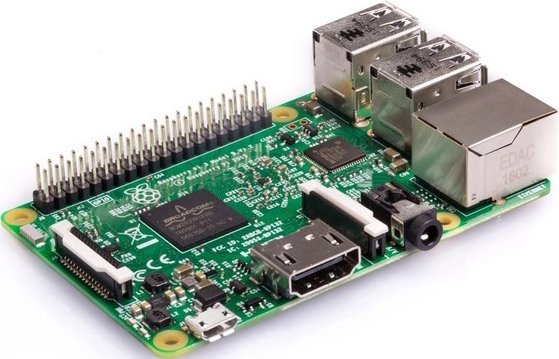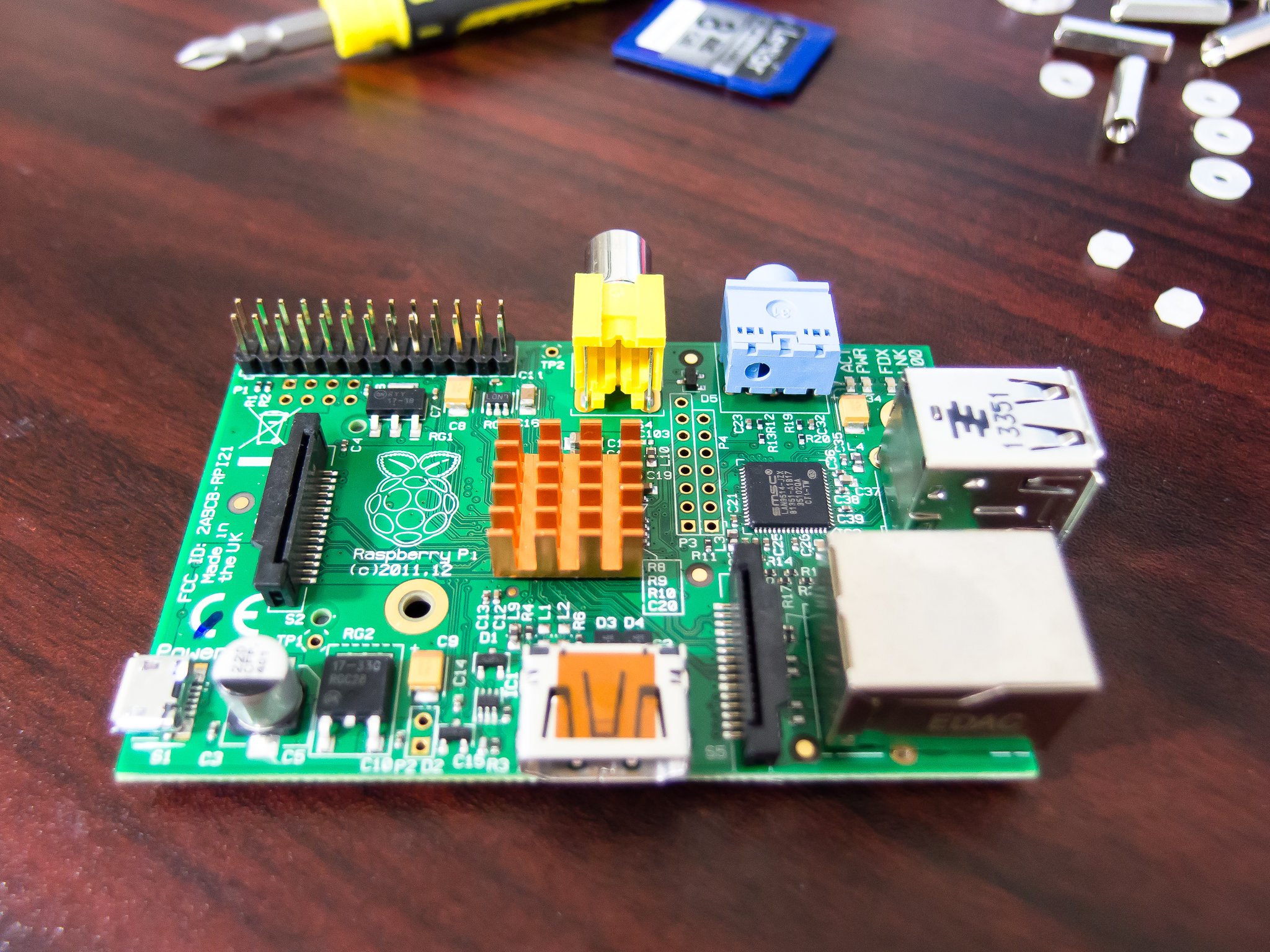The first "powerful" Raspberry Pi is still alive and kicking and might be what you're looking for.
The Raspberry Pi 3b (and the 3b+) was introduced way back in 2016, and for its time, it was one of the most compelling project boards available. That's because it turns out that it was a lot more than a project board, and many a game console, home entertainment system, smart home controller, and even a few robots used the inexpensive PC board. It seemed to be able to do anything.
Nothing's changed in 2021, except our expectations. The Pi 3b is just as powerful as it ever was, and it's still available for anyone looking for a cheap way to get started with any DIY project. OK, so one thing changed — we now have a much more capable Raspberry Pi in version 4.
You still might find a Raspberry Pi 3b is what you need, though, so we're taking a look at it today to see how it stacks up.
Raspberry Pi 3b
Bottom line: The Raspberry Pi 3 is still worth looking at if you're into any sort of DIY electronics, though it's outclassed by version 4 for anything with a user interface. It could be just what you're looking for, though, and it can save you a few bucks in the process.
The Good
- Plenty of inputs and outputs
- Cheaper than the latest model
- A huge active developer community
The Bad
- It shows its age in any desktop environment
- Onboard wireless is weak
- Only available with 1GB of RAM
$38 at Amazon $35 at Sparkfun $35 at MicroCenter
Raspberry Pi 3: Price and availability
At the time of this writing, the price and availability of the Raspberry Pi 3b+ can vary wildly. This is common whenever you're interested in a last-generation product and especially relevant with 2021's notable parts shortages driving users towards "old" products.
Right now, as I type, you'll find a Raspberry Pi 3b+ from a handful of online retailers, and it will cost you about $35. Just last week, the price was closer to $60. The board is no longer in production, so availability depends on finding existing stock. You will save some money over buying a newer model, so it can be worthwhile to check around and find one.
Raspberry Pi 3: What's good
There is no better PC board than the Raspberry Pi, and that goes for version 3 every bit as much as the newest model. More important than specs, the development community behind the Raspberry Pi and the Raspberry Pi foundation have made it so that almost everything when it comes to software or external hardware is fully supported.
At the Raspberry Pi's heart is its GPIO pin setup. It stands for General Purpose Input and Output, and it's a simple header that is fully documented and easily controlled by the processor. In turn, every popular (and some less popular!) programming language can be used to write software to control those pins.
| Specs | Raspberry Pi 3b+ |
|---|---|
| Processor | Broadcom BCM2837B0 Cortex-A53 (ARMv8) 64-bit SoC |
| RAM | 1GB LPDDR2 SDRAM |
| Wi-Fi | 2.4GHz and 5GHz IEEE 802.11.b/g/n/ac wireless LAN |
| Bluetooth | Bluetooth 4.2 with BLE |
| Ethernet | Gigabit Ethernet over USB 2.0 |
| Video | Full-size HDMI DSI display port |
| Ports and Connections | 40 pin GPIO header 4x USB 2.0 ports |
| Connectivity | 802.11 b/g/n, 2.4GHz Bluetooth |
Anything that you want to control using a simple controlled on and off circuit works well with these pins. Some equipment is specialty built to work directly with a Raspberry Pi, or you may need to use simple relays or motor controls for others, but a bit of Python or Java and some simple and cheap components turn this PC board into the brains of whatever you can dream of.
For makers, the GPIO pins are the reason to buy a Raspberry Pi.
While version 3 isn't as powerful or capable when it comes to building a "regular" PC, the GPIO pins work exactly the same. They're just as simple to program, just as many accessories work directly with them, and the response time is darn near-instant.
When the Raspberry Pi 4 was released, I thought about replacing the Raspberry Pi 3s I have here doing random nerdy things for about two seconds. I couldn't find a reason to spend the money because five years later, they work just as well as they ever did.
ProductName: What's not good
The Raspberry Pi 3 is easily outclassed by the Raspberry Pi 4 and other newer PC boards when it comes to hooking up a keyboard, mouse, and monitor and turning it into a computer. The newer model has a stronger CPU, better GPU, more RAM, and much better wireless connectivity than the Raspberry Pi 3, which makes a huge difference anytime there is a user interface at play.
You can build a streaming or gaming box with the Raspberry Pi 3, but version 4 is a better choice.
The Raspberry Pi 3 is still capable of acting as a KODI streaming box or a game emulator; it's just not as good. You'll see more artifacts when streaming video through the Pi 3, you'll see more stuttering during game playback when using the Pi 3, and you'll definitely notice a weaker Wi-Fi signal anytime you're sending big chunks of data across the network.
Does this mean you can't use the Raspberry Pi 3 to do any of these things? No, and I've done all of those things with one. I've also done them with version 4, and I'm telling you it's just worth the extra money to buy the newer model. If you have a Raspberry pi 3 laying around, by all means, use it! Just don't buy one new for anything with a GUI since version 4 exists.
Raspberry Pi 3: Competition
There are other brands of PC board available, and if you're interested in using Microsoft Windows or Android as the operating system, they could be a better fit for you. But the real competition comes from the Raspberry Pi 4.
If you're looking for something to build your own desktop computer, the Raspberry Pi 400 is simply phenomenal. It's an all-in-one that only needs a display and an eager set of hands to get started, and it's noticeably more powerful. For something like a home router or game cabinet, the "regular" Raspberry Pi 4 is a better choice than the Raspberry Pi 3. The extra power, dual 4k output, and increase in onboard memory is well worth the extra money,
ProductName: Should you buy it?
You should buy this if ...
- You're building a network appliance or other IoT project
- You'll be using it remotely through the network
- You have a Raspberry Pi 3-specific accessory
You shouldn't buy this if...
- You want to use it in a desktop environment
- You're building any sort of gaming system
- This is your first experience with the Raspberry Pi
It's hard to say it any clearer — the Raspberry Pi 3 doesn't compare to version 4 in any situation where you work or play with it directly.
It's a fine controller. It's a fine network firewall. It's a fine Rubik's Cube-solver robot brain. It makes for a fair KODI box or retro-gaming console, but you're better off buying a Raspberry Pi 4 if you plan to attach any sort of display to it.
The Raspberry Pi 3 is still a champ when it comes to DIY projects, and I have several of them controlling aquariums or as part of our Christmas lighting setup. It was easy to build my little projects using it, and it still performs so well I never really considered replacing them with a newer model.
But five years later, there are better options when it comes to the things many people want a Raspberry Pi to do, like acting as a super-cheap desktop PC. You'll be much happier spending the money on a Raspberry Pi 4 if this is the plan.
Raspberry Pi 3b
Bottom line: The Raspberry Pi 3 is still worth looking at if you're into any sort of DIY electronics, though it's outclassed by version 4 for anything with a user interface. It could be just what you're looking for, though, and it can save you a few bucks in the process.







Tidak ada komentar:
Posting Komentar